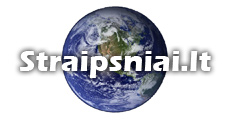Artikeliai
[zero]:
*kreipiniuose: children, stop talking.
*savaitės dienos, mėnesiai, metų laikai, jeigu nėra paaiškinimo: spring, may, Friday.
*breakfast, diner, lunch, supper.
*neskaičiuotiniai (abstraktieji medžiaginiai): music, literature, life, freedom, water, cheese, milk, coffee (jeigu be paaiškinimo).
*tikriniai
*sportiniai žaidimai: golf, football
*ligos
*advice, behavour, information, traffic, news, weather (no a) po paaišk, su of… – the.
*dalykai: english, history.
[a]:
*sudurtinio tarinio vardine dalimi: tom is a clever boy.
*su daiktavardžio, po junginio ‘there is’: there’s a good restourant near my house.
*šaukiamuosiuose sakiniuose: what a nice day.
*po ‘such’: he’s such a good boy.
*daiktavardžio priedėliu: thomas, a third year student, is our friend.
*skaitvardžio one reikįme (reiškinat laiką, atstumą, svorį): I’ll come back in a minute; this path is a kilometre long; I’ll buy a kilogram of bananas.
*prieš skaitvardžius: a dozen, a hundred, a thousand, a million.
*posakiuose: as a rule, to be in a hurry, it’s a shame, to be at a loss, it’s a pity; ypač posakiuose su veiksmažodžiais: to have (a good time, a smoke, a headache), to take (a bath, a shower, a swim), to give (a hand).
*profesijos
*a little, a few.
[the]:
*kelintiniai skaitvardžiai: the first.
*aukščiausio laipsnio būdvardžiai: the shortest.
*su the: following, last, next, same, only (vienintelis); išimtis: next week, last week (laikas).
*kai yra paaiškinimas (pažyminiai): the book I bought yesterday, the way to the station, the flower picked by my brother, the house where I was born.
*žinomas iš kontexto ar situacijos, iš asmeninės patrities: I got a letter. The letter was very long; go to the blackboard.
*vieninteliai: the sun, the moon.
*kai norime atkreipti dėmesį į vienarūšių daiktų klasę: the whale is in danger; the rose is a beautiful flower; the dog is a friend of man (apibūdinimas be artikelio).
*kai būdvardis tampa daiktavardžiu: the rich; the blind; the disabled; the young.
*muzikos instrumentai: to play the piano.
*su: the theatre, the cinema, the radio (but TV), the police.
*tikriniai, kur union, republic, kingdom, states.
*by the window, by the door.
*jūrų, vandenynų, upių, kanalų, sąsiaurių, kalnynų, dykumų, salynų – the; ežerai – zero.
*atskiros salos, kalnai – zero.
*viešbučiai, kino teatrai, daugelis laikraščių ir žurnalų – the; laivai, teatrai, muziejai, kinai, restoranai – the.
*pasaulio šalys – the.
*pavardės, kai kalbama apie visą šeimą – the.
*frazėse daiktavardis + of: the bank of England; the town of London; the gull of mexico; the duke of york; the north of spain.
*chorai, orkestari, pop atlikėjai – the: the beatles.
*home – zero: at home, go home; bet jeigu yra paaiškinimas – the. The bride’s home; the home of our family.
*bed, church, hospital, prison, school, college, university. Kaip įstaiga, vieta pagal paskirtį – zero: to go to bed – to sleep; to church – to pray; to hospital – as patients; to prison – as prisoners; to school – to study; to be: in bed – sleeping; in church – praying; in hospital – as patient. To leave school, prison; but – he is in prison. I go to the prison to visit him.
*sea: to be at sea – to be on vogage; to be/live on the sea – at the seaside.
*work – with (place of working) – zero: he’s at work.
*office – the: he’s in the office.
*vienas iš šeimos – a: you’ll never be a Clinton.
*you’re not the Tom Brown I married.
*accademician: doctor; professor – zero.
*giminystės ryšiai – zero: aunt Betty, uncle Tom.
*gatvės, aikštės – zero.
*tautybės – the: the french.
*su žmonių vardais – be artikelio: Lloyds bank; St. Paul’s kathedral; Harrods.
Emilis
Kauno „Saulės” gimnazija

